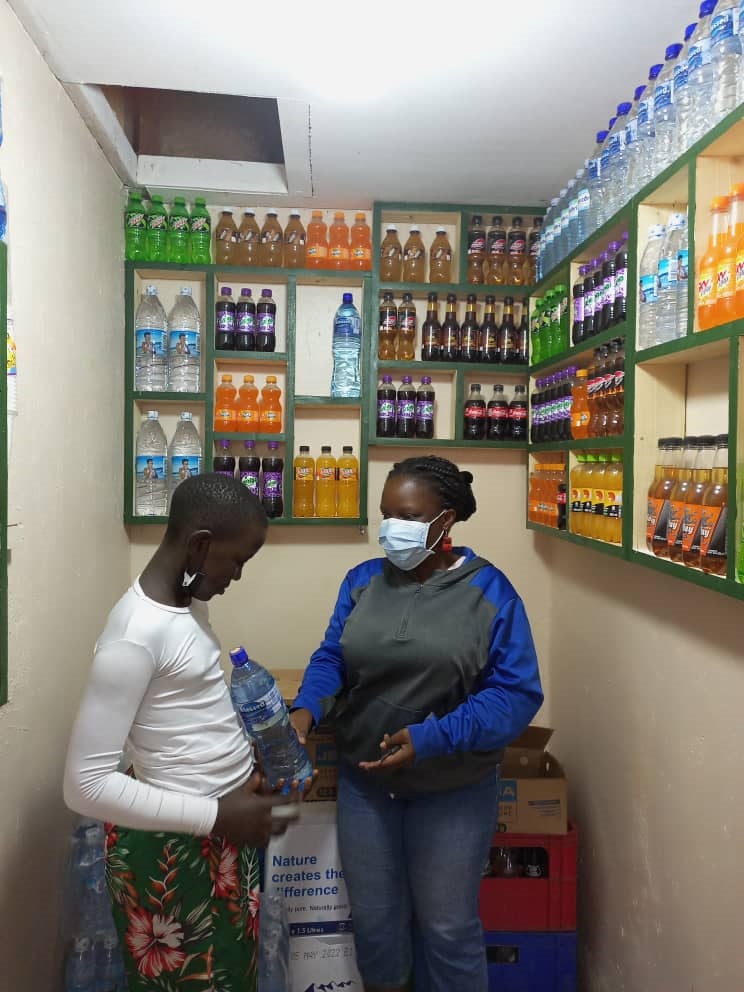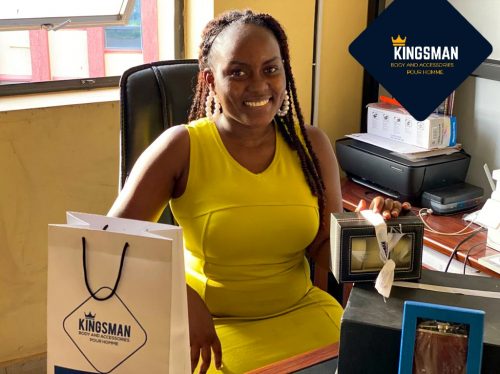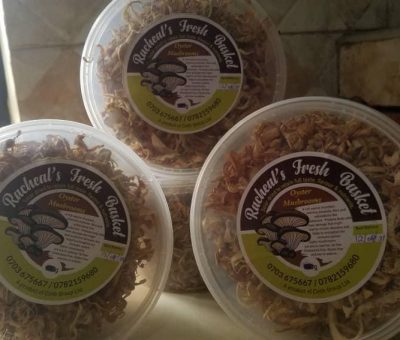Reinventing the wheel in her food business

When COVID-19 hit, with the associated lockdowns, it was time for businesses to rethink their modus Operandi. How does a business survive when most forms of transport are paralysed? How does it make ends meet when the supposed clients are not working? It was time for entrepreneurs to reinvent the wheel and Mariam Kyaterekera with the help of her husband did just that.
Previously, the duo had operated a restaurant and catering services; Brook Restaurant at Kapiti washing bay, a premise they took on after moving from Full Gospel Church, Makerere in search of a cheaper place. That said, the lockdown slowed down business causing them to leave the new place as well. The restaurant’s survival was in a precarious position and something needed to change or they would fade into the wind as many businesses did.
Moving the business to their home in Garuga, Entebbe, became the reasonable option and the beauty of that was the ample space there that worked to their advantage.
This became the new work station where they indulged in outside catering for all occasions plus hiring catering equipment including forks, plates, tables, saucepans, and burners. The space also allows them to cook with ease although they have done most of the cooking at the respective venues.
Kyaterekera says the catering business was in operation two years after opening the restaurant in 2015, however, they had not put a lot of emphasis on it. “When COVID came in, catering was the only way to go for us so that Brook restaurant does not suffer a natural death,” she shares.
Clearly, the start was not difficult because they were transitioning from doing restaurant and catering to catering only. Additionally, finding clientele was somewhat easy because those that had dined at the restaurant reached out or recommended clients.
“In 2017, we would get small orders. During my mother’s funeral, I was paid to cook right from the vigil. However, one of our first big customers was my sister-in-law and her husband; the Malinzis for whom we prepared food for their introduction of about 500-700 people and each plate of food cost Shs12000,” she shares.
Kyaterekera considers these their first clients because it was the first introduction they ever catered for and it took them out of their comfort zone; an experiment on how to handle long-distance services as they had never handled any like that.
Some of the lessons learnt from the function was the need to always be prepared in case numbers swell, and being flexible in case things don’t turn out as planned.
Having restaurant knowledge, pricing was not a problem and with this function, all they had to do was purchase more plates, cutlery whose cost came from part of the money paid for the service.
Costs
Fast forward, Kyaterekera no longer has daily expenses or income seeing that services are not needed daily. Depending on how you look it, this might be a blessing or a curse. “When I get a service, I deal with the expenses there and then and ensure I utilise the profits very well until the next service. At this point, I can’t say that catering is what sustains us. Nonetheless, it is a money-making venture and from the proceeds, I also invest in other things that can bring in daily income such as selling to the community cheap dishes comprising chicken necks, gizzards and chicken legs as well as soft drinks,” she adds.
Challenges
While she is not limited as to whom she can serve with the catering service, Kyaterekera has had her share of challenges on this journey:
Some seasonal foods get really expensive when they are out of season. “However, despite that, clients want you to cut down the price to the lowest. That reduces the profit margin.”
It would be amazing to maintain the same chefs but seeing that it is not a restaurant and therefore not operational every day, she cannot afford to have permanent staff. Thus, it is paramount that you book your desired chef in time lest you miss out on them. However, it is sometimes difficult because there are clients who come on short notice.
Weather, more so rain, is another challenge as it causes a lot of delay in many things. For instance, it is not easy to work once it rains, depending on the environment they are working in at that particular time.
One depressing moment that stands out for Kyaterekera was when a chicken service provider disappointed them although they had booked for an upcoming accession. “When we went to pick them up, he had sold them to another client yet we had paid a deposit, and to add salt to injury, it was the evening eve of the function. That was tough because we were now tasked with looking around markets for chicken, which affected our departure time.”
Triumphs
Kyaterekera is contented and thankful for her business because the food business can be passed on, having inherited it from her mother and hopes to pass on the trade to her children.
It also brings cheer to her heart when they cook and the food turns out to be something everybody talks about, how tasty it was and they have had that on several occasions.
Lessons
Kyaterekera has learned from the lockdown that one must be open-minded, ready to adjust where possible; you must be wise, never putting all your eggs in one basket. “You also need to put God first in all that you do, for guidance, for Him to bless the works of your hands. For without Him it is impossible to achieve the very best in life,” she intimates.
Future
Kyaterekera is looking to reopen the restaurant in Nakawuka while still offering a catering service.
thepearluganda





































